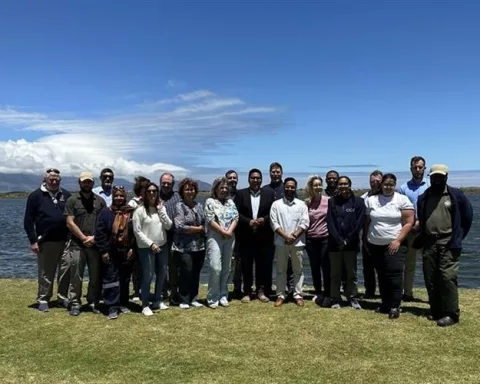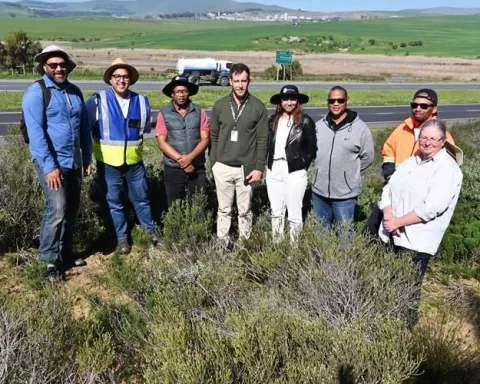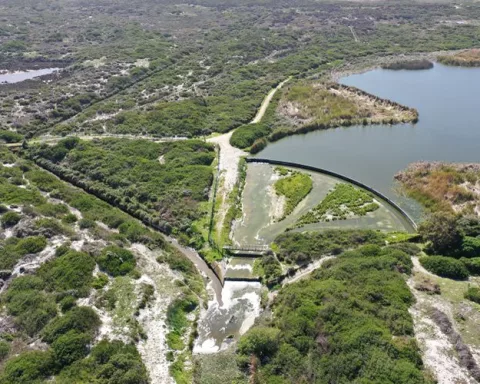Cape Town’s tap water has a peculiar earthy taste, thanks to a compound called Geosmin, which can become more noticeable during hot weather. While residents might find this flavor strange, the city assures everyone that the water is safe to drink. Geosmin is also found in beetroots and even gives off a nostalgic smell after rain. Local residents are adapting, with some even finding creative ways to incorporate the unique flavor into their cooking. This situation highlights the connection between urban life and nature, reminding us of the beauty and complexity of our environment.
What causes the earthy taste in Cape Town’s tap water?
The earthy taste in Cape Town’s tap water is due to Geosmin, a naturally occurring compound. While its concentration can increase during hot weather, the City of Cape Town assures residents that the water is safe to drink and meets local quality standards.
Cape Town residents have recently experienced a peculiar taste in their tap water, which has piqued curiosity and raised questions. The flavor, reminiscent of earth and sand, has puzzled many locals. The cause of this unusual taste is Geosmin, a naturally occurring compound. Despite the distinct flavor, the City of Cape Town assures the public that the water remains safe to drink and meets the South African Drinking Water Quality Standards (SANS 241: 2015).
Understanding Geosmin: Nature’s Earthy Whisper
Geosmin is an organic compound that poses no health risks. It is the same substance responsible for the earthy taste in beetroot and the nostalgic scent that fills the air after it rains. Under normal circumstances, Geosmin exists in water at levels that are undetectable to the human senses. However, during periods of hot weather, like those recently experienced in Cape Town, its concentration can increase. When this compound reaches just a few parts per trillion, it becomes noticeable to our taste buds.
The City’s Water and Sanitation Directorate has pinpointed Geosmin as the factor affecting water supplied from the Faure and Blackheath Water Treatment Plants (WTPs). These facilities serve various parts of Cape Town, particularly its central and southern regions.
The Science and Art of Water Treatment
Councillor Zahid Badroodien, the City’s Mayoral Committee Member for Water and Sanitation, has reassured the populace that engineers, laboratory scientists, and process controllers are keeping a close watch on the situation. At the Faure and Blackheath WTPs, the water treatment teams have ramped up their efforts, adding powdered activated carbon to counteract the effects of Geosmin.
Although this treatment is effective, it may take some time for the taste and smell of the water to return to normal. This delay serves as a reminder of the intricate and delicate process involved in water treatment, a blend of rigorous scientific methods and careful monitoring.
The Historical and Artistic Context of Taste and Smell
The presence of Geosmin in Cape Town’s water connects to a broader historical and artistic narrative. Earthy scents and tastes have long intrigued humanity. In literature, the smell of rain, referred to as petrichor, often symbolizes renewal and nostalgia. The term “petrichor,” coined by Australian researchers in the 1960s, combines the Greek words for stone (petra) and the blood of gods (ichor).
Artistic movements like Romanticism have always celebrated nature’s raw beauty, aiming to capture its essence. Geosmin in our tap water evokes a similar sense of appreciation for nature’s complexity and beauty. It’s a subtle reminder of our bond with the natural world, even in everyday activities like drinking water.
Anecdotes from Cape Town’s Residents
Local stories reflect a blend of curiosity and mild discomfort among Cape Town residents. Sarah, who has lived in the southern suburbs for years, recalls her initial reaction. “I thought there was an issue with the plumbing,” she says with a chuckle. “Then I remembered reading about Geosmin. Now, it feels like a little piece of nature in every sip.”
James, a chef at a bustling Cape Town restaurant, views it as an opportunity. “It adds an unexpected element to our dishes,” he remarks. “We’ve started incorporating more earthy flavors into our menu to complement the water’s taste. Our customers enjoy the unique story behind it.”
Reflections on Urban Living and Natural Elements
The impact of Geosmin on Cape Town’s tap water encourages broader reflections on urban life and our relationship with nature. In a city where modernity coexists with natural beauty, this episode highlights the delicate balance we maintain daily.
Cape Town, known for its stunning landscapes and dynamic urban life, embodies contrasts—mountains and beaches, bustling markets, and serene parks. The presence of Geosmin in the water serves as a gentle yet poignant reminder of nature’s omnipresence, even in urban environments.
The Role of Municipal Authorities
Municipal authorities are pivotal in maintaining this balance. The City of Cape Town’s proactive measures demonstrate their dedication to public health and quality of life. By diligently monitoring water quality and implementing advanced treatment techniques, they ensure that residents have access to safe and pleasant drinking water.
Councillor Badroodien’s statements illustrate a transparent and responsive approach, fostering trust and reassurance among residents. This highlights the significance of effective communication between authorities and the community.
Insights from Environmental Science
Environmental science provides valuable insights into Geosmin’s behavior and impact. This compound is produced by microorganisms in soil and water, especially during warm conditions. It underscores the interconnectedness of ecosystems and how environmental changes can affect urban infrastructure.
Understanding these phenomena deepens our appreciation for the complexities of water management. It also emphasizes the importance of environmental stewardship and sustainable practices in preserving water quality.
A Global Perspective
Geosmin in water is not unique to Cape Town. Similar occurrences can be observed in cities worldwide, often linked to natural cycles and climatic conditions. This global perspective reminds us that water management challenges are universal.
Learning from other regions can enhance Cape Town’s strategies. Some cities have developed innovative filtration technologies and community engagement initiatives to address taste and odor issues. Sharing knowledge and experiences can foster global collaboration in water management.
Cultural Resonance and Future Implications
Culturally, the presence of Geosmin in tap water resonates with broader themes of human interaction with the environment. It echoes narratives found in folklore and literature, where natural elements often symbolize deeper truths about life and existence.
As we look to the future, embracing such narratives can enrich our approach to urban planning and sustainability. Integrating cultural and ecological perspectives can lead to more holistic and resilient cities, where the bond between nature and urban life is cherished and preserved.
FAQ on Cape Town’s Tap Water and Geosmin
What causes the earthy taste in Cape Town’s tap water?
The earthy taste in Cape Town’s tap water is caused by Geosmin, a naturally occurring compound that can become more pronounced during hot weather. Despite the unique flavor, the City of Cape Town confirms that the water is safe to drink and meets local quality standards.
Is Geosmin harmful to health?
No, Geosmin is not harmful to health. It is an organic compound that is also found in beetroots and is responsible for the earthy scent after rainfall. While it can affect the taste of water, it poses no health risks.
How is the City of Cape Town addressing the Geosmin issue?
The City of Cape Town’s Water and Sanitation Directorate has implemented measures to manage Geosmin levels by adding powdered activated carbon at the Faure and Blackheath Water Treatment Plants. This helps mitigate the taste and smell, although it may take time for normal conditions to return.
Are there any creative ways residents are adapting to the taste of the water?
Yes, some residents are finding creative ways to incorporate the unique earthy flavor of the water into their cooking. For instance, chefs in Cape Town are experimenting with earthy flavors in their dishes to complement the taste of the tap water, turning a challenge into an opportunity.
How does Geosmin reflect the relationship between urban life and nature?
The presence of Geosmin in Cape Town’s tap water serves as a reminder of the intricate bond between urban living and nature. It highlights how environmental factors can influence daily life in a city known for its stunning landscapes, emphasizing the importance of maintaining a balance between urban development and ecological health.
Is the presence of Geosmin in water a common issue in other cities?
Yes, occurrences of Geosmin in water are not unique to Cape Town. Similar taste issues can be found in many cities worldwide, often linked to seasonal changes and climatic conditions. This global perspective underscores the universal challenges of water management and the importance of sharing knowledge and strategies across regions.












